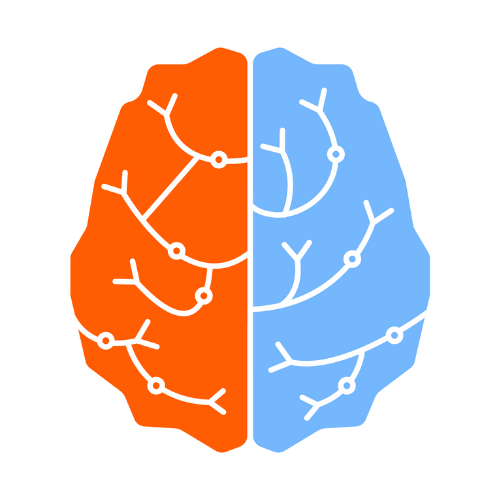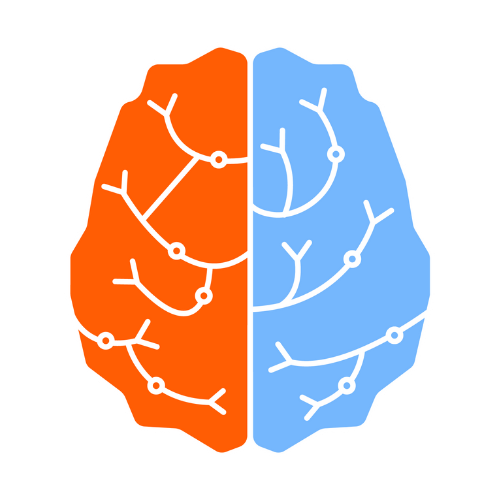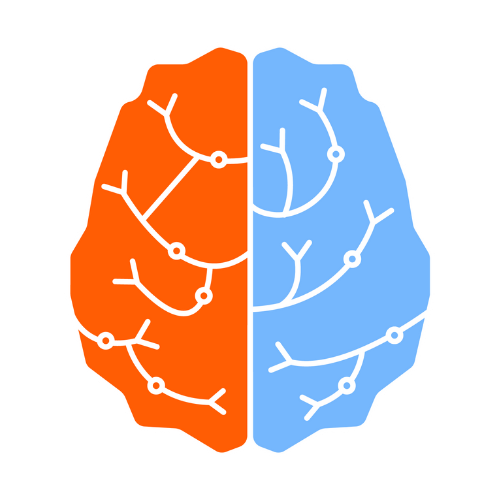A Positive Spin on Dizziness Vol. 1
Demystify Complex Dizziness
Elligible for 8 Hours/0.8 CEUs
Complex dizziness can be confusing and overwhelming

Sometimes it just doesn't make sense...
You've encountered some patients whose dizziness fluctuates without reason or seems more complex and layered than you originally thought

You totally get that there are different sensory systems involved in balance...
BUT your current way of figuring sensory weighting principles between the different systems feels a little haphazard and hit or miss

You're done feeling like you're throwing spaghetti at the wall
And you are ready to find good resources that help you provide tailored treatments for your clients
This course goes beyond rigid protocols and gives you the deep dive you've always wanted.
Instead of just tracking nystagmus or VOR, we focus on how the vestibular, visual, somatosensory, and autonomic systems interact to create maladaptation and hypersensitivity to movement, visuals, and touch.
A Positive Spin on Dizziness Vol. 1
is perfect for you if...
-
You’re a PT or OT who feels stuck when cases don’t fit the classic dizziness diagnoses.
-
You’ve had patients with dizziness that lingers, flares, or feels vague — and you’ve wondered if you’re missing something.
-
You want a step-by-step framework to confidently evaluate and treat sensory mismatch, hypersensitivity, and complex dizziness.
-
You’re ready to go beyond traditional protocols and start using clinical reasoning that actually matches what’s happening in the brain.
-
You’re craving tools, clarity, and confidence to help the “hard to treat” dizzy patients — and you want to walk into evals knowing exactly where to begin.
By the end of this series you will be a rockstar at complex dizziness

You'll Know How To...
-
Differentiate between sensory system hypersensitivities, dysfunctions, and dependencies
-
Apply a novel framework to demystify complex multisensory dizziness and imbalance
-
Dive deeper to differentiate between canal and otolith dysfunction and hypersensitivity
-
How to initiate a program when someone can’t tolerate traditional habituation
-
How to assess and treat maladaptive responses due to abnormal functional connectivity by “HAC”ing the systems (habituation, adaptation, compensation)
Get Unstuck with your Dizziness Cases
"This course was a wonderfully comprehensive presentation on how to identify, diagnose, and treat rare forms of dizziness. I now feel more confident in assessing not only the visual, somatosensory, and vestibular aspects of dizziness, but also the otolith and autonomic components! I can't wait to spend more time reviewing the materials presented in this course so that I can treat my patients in a way that is more individualized and paced properly for their recovery. THANK YOU!!!" -N.P.
What's Included in a Positive Spin on Dizziness

Positive Spin on Dizziness 1.0
On Demand Course
-
8 Hours of learning (0.8 CEUs)
-
Learn how to examine and treat the sensory systems using a framework for analysis of movement and sensory weighting that helps you differentiate between a dysfunctional system and a hypersentive system
-
Address the autonomic response to multisensory stimulation: techniques to settle symptoms and promote control
-
Plus all of these resources!
✅ FULL Otolith Evaluation Cheat Sheet
-
Detailed subjective + objective components
-
First-day treatments
✅ System Weighting Variables Cheat Sheet
-
How to identify and dose for sensory dependencies
✅ Positive Spin Treatment Cheat Sheet
-
Printable quick reference to help you when you’re feeling stuck
-
Ready to take on ANY Dizziness Case?
Learn with
re+active Education
Jaimy Wahab, PT, DPT, NCS & Katherine Deines, PT, DPT, NCS
Jaimy is owner of the Balance and Neurologic Center of the Rockies and has been a Neurologic Clinical Specialist since 2007. She is affiliate faculty at Regis University since 2005 assisting in the neurologic thread. She received the Outstanding Affiliate Faculty Award, Regis University in 2019. She has participated in research related to somatosensory impairment in those with Parkinson’s Disease through Regis University’s physical therapy program. Additionally, she has been an invited speaker for many community and professional groups at the local, national, and international levels.
Katherine is Co-owner of STEP UP Physical Therapy in Denver, CO and is a Neurologic Clinical Specialist. She completed competency in Vestibular Rehabilitation 2002, at Emory University and has assisted in neurologic and vestibular coursework and labs for the University of Colorado physical therapy program. She has also participated in research related to somatosensory impairment in those with Parkinson’s Disease through Regis University’s physical therapy program and has published Physical Therapy Case Reports and Journal of Rheumatology. Lastly, Katherine has presented at APTA’s Combined Sections Meeting in platform and poster presentations.
Frequently Asked Questions
Does the Positive Spin Series provide CEUs?
Will this course be in person, online, and/or recorded?
How much time will the course take?
How long do I have access to the material?
What if I am unhappy with the course?
100% Satisfaction Guaranteed
If you've done the work, and are not satisfied then we will happily refund you your full amount!

